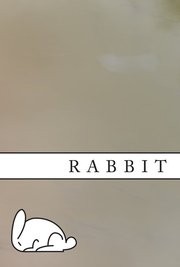Magazines #5
One more Rabbit

Free verse isn’t just for students. One of the most interesting practitioners of the line — perhaps the most — in Australia is Claire Gaskin. Gaskin’s use of the line is always working the line over other formal elements, even when she enjambs it:
suppose, for instance, that men were only
represented in literature as the lovers of woman
says Woolf
This is from the poem ‘Paperweight,’ just one more poem from Rabbit #1. Whereas other poets worth reading work the line to energise a stanza or their poem as a whole, Gaskin’s focus is on the line. This allows, I suppose, for readings of her work as dispersed, disjunctive blah blah, but such readings miss the point. Gaskin’s power is that of a haiku-inflected, feminist-charged, Surrealist fission. Not fusion, as a lazy music as soup metaphor might have it. (Because we who love to not love formalism have heard all that ‘line’ before.) There is a post-formal feel to such ‘free verse’ too; not the echo of metre, but the echo of the line-based form of, in particular, the pantoum, in the recycling of sentiments and the ‘soap in the stocking’ line. In the above, though Gaskin is making a point, a not perhaps startling one, the emphasis comes down on ‘says Woolf,’ giving her an authority that is common in many places, and yet in texts by men, generally subsidiary to the list of modernist men.
Feminism is back on the table says Gaskin and it’s not letting anything worthwhile blow off:
Very Easy Death Beauvoir says
The sight of my mother’s nakedness
had jarred me. No body existed less for me:
no one existed more.
Here the Beauvoir allusion takes on a materiality that gives it weight rather than signing power. Gaskin claims Beauvoir as a peer rather than as authority or influence. Gaskin’s assurance is manifest in her refusal to italicise or use quote marks around Beauvoir’s title.
the graves are shallow because the soil is rocky
it is not self indulgent it is self expression
the dead are useful as paperweights
Three one-liners from the poem, that suggest that saying something is back in town — the lyrical aspect balanced by Gaskin’s determinedly social attitude. This is not Robert Gray or Dorothy Porter, two of Gaskin’s local precursing purveyors of the line — seemingly dispensed with in the couplet: ‘the moon is full/the pain in my uterus.’ There is something new in Gaskin’s tone I think. In this pair of couplets for example,
a world of comfort and family
that disappears when the match goes out
cooking and cleaning is an act of love
writing is an act of survival
Gaskin uses banality as a lulling weapon. The point of her method seems to be experiential — ‘lifelike’ in a real sense — not a reified ‘modern life’ — rather than cumulation for an end effect. Gaskin presents the homely without being reductive (or Freudian). The writer takes time out in a café, where the workers are ‘pissed off.’ There is a conscious sacred aspect, that knows that sacrifice is inevitable:
Woolf would say it’s not good to work from anger or defence
so long as you write what you wish to write
she says
for another six pages while my vegetables get hot in the car
functional like a piece of soap in a stocking
tied to a tap over a bucket
There’s no point in wishing for servants; Woolf is functional. Gaskin’s narrator drinks ‘three pots of tea.’ Gaskin’s poems don’t reject in order to define themselves (her definition of ‘cool’ in the poem). There is warmth and there is bullshit. Gaskin gives her all in an effort to separate out the latter.
Australia, Fitzroy